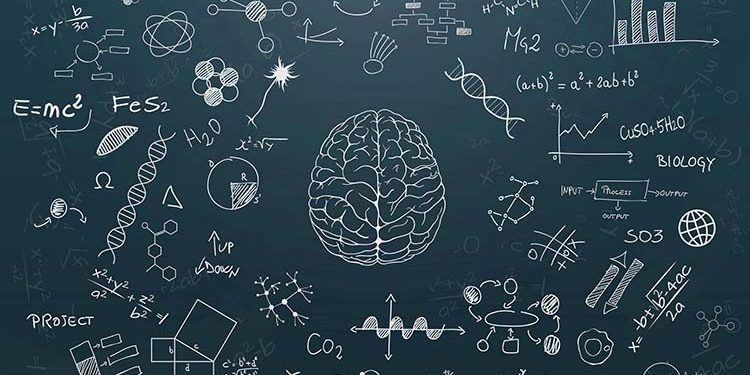I have been asked to write my blog this week on the topic of how meditation works. To begin with it is important to bear in mind that this whole field of research is in its early stages, much of the research methodology has weaknesses, and there is much more work to do before we can have a definitive answer to the question of how meditation works.
There are different types of meditation and they work in different ways. However, the general principle, which we teach in our Level 1: Being Present Mindfulness course is ‘energy follows focus’. Or as neuroscientist and meditation teacher Rick Hanson says, ‘neurones that fire together, wire together’ or in other words, the concept of neuroplasticity (Hanson, 2009).
Mindfulness meditation is a practice of setting an intention to be present, for example, focussing on the breath. Then after a while the mind wanders into thinking and this takes us out of the present. Our intention wakes us up and then we let the thinking be and return to the present by re-focussing on the breath. We do this over and over again and in this way we take our focus and energy out of the habit of thinking and place our focus and energy in to the habit of being present.
As indicated in my earlier blog on the default mode network, when we are not task oriented, this brain network activates and gives rise to self-referential discursive thinking. By consistent mindfulness practice, we take our focus and energy out of the default mode network. Then over time this network quietens down, because the brain rewires in accordance with repeated experience.
Kindness and compassion meditation is a practice of setting an intention to cultivate kindness and compassion. For example, we might imagine different groups of people and wish them well so as to generate a flow of kindness or we might imagine breathing in a compassionate colour as a way of generating a flow of compassion. When we become distracted we repeatedly bring ourselves back to cultivating the flows of kindness or compassion. With consistent practice we place our focus and energy into brain networks for kindness and compassion, which are then activated and energised and the brain rewires in accordance with repeated experience.
For the remainder of this blog I have focussed on the Altered Traits book by Goleman and Davidson and a summary of their findings is set out below (Goleman et al, 2018).
If you really want to know how meditation works, then this is the book to read.
Different meditation techniques work in different ways, so for example, breath focus meditation has the effect of calming the mind while kindness meditation has the effect of creating positive mood.
The main neural pathways meditation transforms relate to:
- Those for reacting to disturbing events.
- Attention.
- Compassion and empathy.
- Sense of self.
Training in attention meditation, such as breath awareness can improve the pre-frontal cortex’s ability to down regulate amygdala activation, so as to avoid emotional hijacking and so improve emotional regulation and impulse control and reduce stress. It also improves our ability to pay attention and not become so easily distracted, reduces attentional blink (tuning out briefly after spotting something) and increases working memory, so that more short term memory goes into long term memory.
Loving kindness meditation, which is a key part of the Mindfulness Association’s Level 1: Being Present Mindfulness course stimulates the parental care networks of the brain and overcomes the tendency to tune out of another’s distress and so enables us to respond with compassion. This type of meditation enables us to notice, empathise and actually help others in distress, as well as boosting good feelings, relaxation and generosity. Widening our kindness practice to different groups of people has been found to reduce unconscious bias.
Compassion meditation, which is the focus of the Mindfulness Association’s Mindfulness Level 2 – Responding with Compassion, has been found to energise and improve brain networks for happiness and joy, as well as increasing empathy.
The brain’s default mode network generates self-focussed mind wandering, which knits together the narrative of our sense of self and is often focussed on what is troubling us. The more we engage in this self-referential thinking the stronger our sense of self becomes. The whole point of spiritual training in meditation is to lighten the sense of self. In long term meditators the pre-frontal cortex inhibits activity in the default mode network and so begins to lighten our sense of self. Over time, self-focussed thoughts become less ‘sticky’ and thoughts, emotions and feelings are experienced as just passing mental events, as opposed to something personal, which needs to be engaged with, ruminated on and worried about.
The mechanisms discussed above result in two major benefits, a healthy body and mind. Although, their key premise is that short term practice has short term results and long term transformation is a result of long term practice. (Goleman et al, 2018).
Written by Heather Regan-Addis
Heather Regan-Addis is a Founder Member and Director of the Mindfulness Association.
Heather delivers training for the Mindfulness Association on our two Post Graduate Master’s degree courses as well as on our regular courses in Mindfulness, Compassion, Insight and on our Teacher training programmes.
Heather will be guiding practices at the Free Members’ Retreat Weekend 24-26 September,
(You can join our membership for just £10 for 6 months to benefit from a whole weekend of practice.)
Join Us for Free Online Daily Guided Meditation practice every day. at 10.30am( Monday-Friday) and 7pm every day to find out how meditation works for you!
References
Goleman & Davidson – https://www.penguinrandomhouse.com/books/533719/altered-traits-by-daniel-goleman-and-richard-j-davidson/
Hanson, 2009 – https://www.rickhanson.net/books/buddhas-brain/


